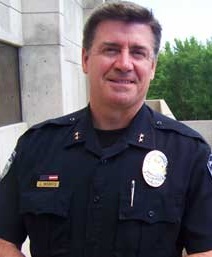Emergency drills a waste of time? Think again

Image via ACC
There is no question that emergency drills are tedious and a drain on students’ most valuable resource: time.
Yet, the only way to be absolutely certain students, staff and teachers are fully prepared for any contingency in the event of a real threat is to test reactions and the reaction time of the ACC population, as well as the police department itself.
“The intent,” Chief Joseph Morris of the ACC police department says, “Is not to be fear mongers, but it is the police department’s duty to maintain a safe learning and working environment.” A responsibility he takes very seriously. He sees drills as a tool to assess strengths and weaknesses and deal with them accordingly.
Second nature response is the goal of the emergency drills to reinforce what students, teachers and employees need to know if an emergency situation arises.
Granted, in today’s proactive climate, most everyone has endured drills at some point, whether it was in high school, the work place or another college. For this reason, many do not take drills seriously because it is a case of, “here we go again, a waste of my already limited time.”
Chief Morris understands how students may feel. However, he says, “That was a different location and a different system. Each emergency system is unique to its location and situation.”
Beyond Morris’ feeling the personal and professional responsibility to provide a safe environment for study and work at ACC, he is also mandated by the CCCS system to hold periodic drills. Although the time, type and length of a drill are at his discretion, CCCS and the Department of Education require ACC to show the number of drills and type of drills held in an annual report.
Morris feels strongly that one of the most important aspects of holding drills is to test the department to find and correct any glitches in procedures or emergency equipment, such as the student notification process and the public address system. Drills also measure the response time for surrounding emergency responders.
The last drill held a few weeks ago came on a day when Morris and only one other officer were on duty. “It was good to see how effective we were responding to different areas with minimal staff because Murphy’s Law says we will be understaffed when it happens.” Chief Morris observed.
If not addressed now, staffing and other unforeseen contingencies could be a serious impediment in a real emergency. Morris stressed the need to actively explore all possible scenarios in advance.
Another revelation was the number of student who were still in the halls and oblivious to the drill or failing to take it seriously because “it was just a drill.” The officers went floor to floor checking that students were in a secure location and ushering the stragglers to safety.
“We need to find a better way of communicating with the students. People need to realize we are responsible for their safety,” said Morris.
Morris feels drills will take less time as his department becomes more efficient through additional training and drills.

Geraldine Smith is a reporter for the Arapahoe Pinnacle. She is a second-year, non-traditional student at ACC. (Her grown children have to help with some of the technology and a lot of the math.)
Often the oldest in class, she feels...


